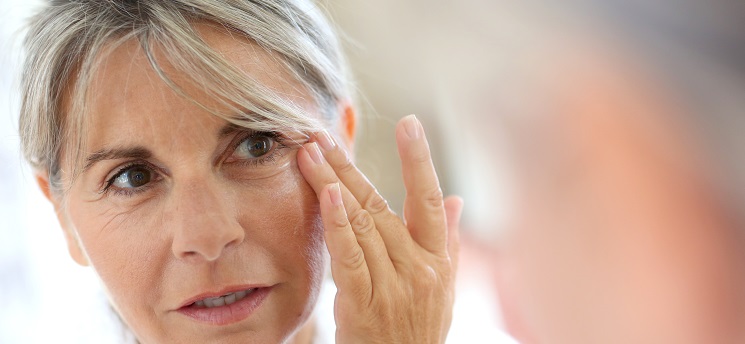However diligent you are in taking care of your skin, fine lines and wrinkles will appear because they are natural part of ageing. However, slowing the signs of ageing skin can be achieved by dealing with the factors that contribute to its existence in the first place – UV rays, smoking, and stress being the main ones.
As it turns out, stress might just be the number one culprit behind stubborn wrinkles, and it is not limited to expression lines that come from a constantly furrowed brow.
Stress and wrinkles
A little bit of stress is normal and accepted as a part of everyday life. However, too much stress can set off a hormonal torrent in your body. These hormones can endanger the parts of your skin structure that keep it looking youthful and tight.
Stress, aside from wrinkles, can also make other skin problems worse. For instance, it can aggravate psoriasis, rosacea and eczema. Stress can also trigger hives and other skin rashes and might trigger a flare-up of cold sores.
“Stress hormones such as cortisol break down our collagen and elastin and interfere with rejuvenation,” says dermatologist Keira Barr.
Read: Frowns and wrinkles – a curse or testament to a well-lived life?
How to get stress under control
Unfortunately, there’s no topical solution to decrease stress. There’s not even a one-size-fits-all guide to combating stress in your everyday life because everyone feels stress from different events or occurrences.
Working to consciously relieve stress in your day-to-day life is a great start though. Identify a stress-relieving activity you genuinely enjoy and take an interest in.
“Everyone has such a unique relationship with stress, and learning how to recognise the stressors in our lives and acquiring the skills and tools to navigate and manage those stresses is the most potent ‘wrinkle reducer’ I can offer my clients,” says Ms Barr.
Activities such as walking your dog, yoga, sticking to a longer self-care ritual, meditation, baking, crafting or any related activities can make a huge difference in your stress levels and your skin over time. Movement and physical activity in itself can reduce stress levels and improve your mood, so incorporate some exercise into your daily routine.
Following a healthy diet will also save your skin from premature ageing. A diet high in ultra-processed foods alongside added sugar heightens stress levels.
However, fuelling your body with healthy foods will give you the nutrients you need to regulate stress and enjoy your day.
Read: Skin changes you should know about
Ways to ease the impact of stress on your skin
Relieving stress in your everyday life will help to minimise stubborn wrinkles. Here are some more tips and tricks you can try.
Reducing phone use and screen time
Smartphones, computers, and tablets are heavily integrated into our daily life. While these devices are usually necessary, using them too often boosts stress levels. Numerous studies show that excessive smartphone use and phone addiction are linked with increased levels of stress and certain mental health disorders.
Practice self-care
Making time to indulge in a self-care routine can also improve your wellbeing and keep stress at bay. You can go for a walk, take a bath, light a candle, read a good book, prepare a meal, or massage yourself. All are valid forms of self-care.
People who engage in self-care have lower levels of stress and a better quality of life. And remember, self-care doesn’t have to be elaborate or complicated.
Exposure to specific scents via candles or essential oils may help alleviate stress, as they can be calming. Consider having lavender, rose, bergamot, or geranium oils in your home.
Read: New study links stress with lower immunity as you age
Skincare products that can help with fine lines and wrinkles
Retinol
Vitamin A, or retinol, has undergone a lot of research to validate its anti-ageing properties. Retinol works by encouraging skin cells to regenerate, stimulating new collagen production, fighting free-radical damage and gently exfoliating the skin surface. With these features, it has become a popular treatment for signs of ageing. It can visibly improve fine lines and wrinkles, as well as hyperpigmentation.
Vitamin C
Vitamin C is another well-researched skincare ingredient, and it effectively targets a range of skin concerns. It can improve the appearance of fine lines and wrinkles, as well as treat dark spots and dullness. Vitamin C, being a powerful antioxidant, also aids in protecting the skin from free-radical damage.
Peptides
Peptides are brief bonds of amino acids that occur naturally in our bodies. There are a variety of peptides, and each type of peptide performs differently. Some send signals to skin cells to make more collagen, and some assist in treating wounds. Here are a few that show some promise in clinical studies.
- Argireline is a neuropeptide that inhibits the neurotransmitters that tell your facial muscles to move, leading to firmer skin and fewer dynamic wrinkles.
- Copper tripeptides are among the most well-examined peptides. They stimulate the production of collagen and encourage wound healing.
- Matrixyl is the trademarked name for palmitoyl pentapeptide-4, which stimulates the production of elastin, fibronectin, and collagen to reduce the volume and depth of wrinkles.
Stress is inevitable, but reducing stress and taking extra care with our skincare routine can help reduce wrinkles and fine lines.
What do you include in your skincare routine? Do you have a favourite product that reduces the appearance of wrinkles? Let us know in the comments section below.

